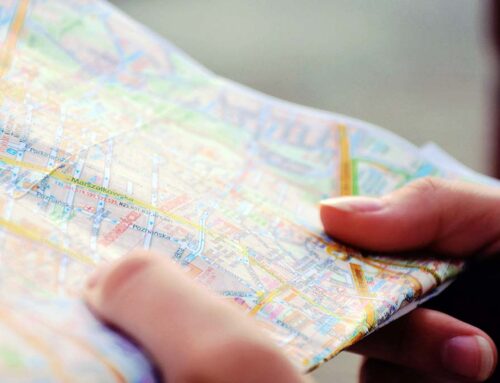Bankruptcy can be an efficient tool for resolving debt problems. Not only does the law protect you from collectors once you file, but the end of a successful case makes those protections permanent in the form of the Discharge of Debtor.
Bankruptcy lawyers like me to throw around the term like it’s something you learn in kindergarten, forgetting that it’s foreign to most people. So with that in mind, here’s your ultimate guide to the discharge in bankruptcy – this time, for a Chapter 7 case.
What is a Discharge of Debtor?
A Discharge of Debtor (which I’ll call a Discharge from now on) is a legal document that releases you from personal liability for certain types of debts you owe before filing for bankruptcy.
Once the bankruptcy judge issues your discharge, you are no longer legally required to pay the debt. Though you can voluntarily pay the debt later, the creditor can’t try to collect it from you.
The Discharge of Debtor is stamped with the judge’s name, but the Clerk of Court issues it. In most cases, the judge never sees your discharge and has no interaction with the administrative processing of your case.
When You Receive a Discharge
When you file for bankruptcy, you’re required to attend a Meeting of Creditors. Your creditors, the Chapter 7 trustee, and any other interested parties have 60 days from the Meeting of Creditors to object to your discharge or the dischargeability of a particular debt. Once that deadline passes, you’re eligible to receive your Discharge of Debtor. Usually, your discharge will be issued about 30-90 days after the deadline passes.
In a Chapter 13 case, the court issues a Discharge of Debtor once you’ve completed all Plan payments and the other work required under the U.S. Bankruptcy Code and your local court’s rules.
Finding Out About the Discharge
You will receive a copy of the Discharge of Debtor in the mail, and your bankruptcy lawyer will get a copy electronically when the court issues it. Your creditors will also receive a copy by mail, and many creditors subscribe to online services that provide them with immediate electronic notification.
The rest of the world will know about your Chapter 7 bankruptcy discharge only if they receive a copy of your credit report or go to the courthouse and type your social security number into the system. Your bankruptcy information is considered a public record but not broadcast on the evening news.
Which Debts Are Discharged – And Which Are Not
In general, your discharge will wipe out your liability for repayment of the following types of debts:
- credit cards;
- personal loans;
- medial and dental bills;
- personally-guaranteed loans.
Depending on the type of bankruptcy case, you may still be legally liable for certain debts. For example, if you file a Chapter 7 case, you will still be required to pay the following:
- certain taxes;
- debts determined to have been incurred by false pretenses, false representation, actual fraud, breach of fiduciary duties, embezzlement, larceny, or by the use of a false written statement;
- debts of more than $600 incurred for luxury goods and services within 90 days of the filing of bankruptcy;
- debts of more than $875 incurred for cash advances within 70 days of the filing of bankruptcy;
- debts for domestic support obligations;
- debts for willful and malicious injury to a person or a person’s property;
- debts incurred due to fines, penalties, and forfeitures to the government unless those debts are older than three (3) years and not for a tax;
- student loan debts (unless the debt meets a separate standard for dischargeability);
- debts due to death or personal injury caused while driving intoxicated; and
- debts that were deemed non-dischargeable in a prior bankruptcy case.
However, if you file a case under Chapter 13, some of the debts that would survive a Chapter 7 case will be wiped out. As a result, the discharge at the end of a Chapter 13 case will leave you with only the following obligations:
- family support;
- court-ordered restitution;
- debts determined to have been incurred by false pretenses, false representation, actual fraud, breach of fiduciary duties, embezzlement, larceny, or by the use of a false written statement;
- student loan debts (unless you meet a separate standard for dischargeability);
- debts due to death or personal injury caused while driving intoxicated; and
- tax debts for which you did not file a return before filing your bankruptcy case.
What About Mortgages and Car Loans?
When you take out a mortgage or a vehicle loan, the creditor takes what’s called a “security interest” in the property. That means the creditor can take back the property if you don’t pay.
The discharge you get at the end of a Chapter 7 case will end your personal liability for repayment of mortgages and car loans. However, that means that the creditor isn’t allowed to sue you personally for any money. Still, you must continue paying the debt to keep the property or the vehicle.
Suppose you fall behind on a mortgage or vehicle loan after bankruptcy. In that case, the creditor can take legal action to recover the item through foreclosure or repossession. You won’t face a lawsuit for any outstanding money. However, you’ll still lose the property even if you file for bankruptcy and get a Discharge.
The situation is different in a Chapter 13 case, though. Under Chapter 13, you may remain obligated to pay your mortgage or vehicle loan at the end of the case.
Student Loans Discharged in Bankruptcy
Bankruptcy discharges student loans only if there is a separate finding by the judge of undue hardship. This standard applies to all student loans – federal, private, and those issued or guaranteed by other countries.
You’ll file a lawsuit in bankruptcy court, called an adversary proceeding, against the student loan lender. You must prove that paying the student loan constitutes an undue hardship for you and your dependents.
Because the U.S. Bankruptcy Code doesn’t define “undue hardship,” courts apply different standards when deciding whether to discharge your student loans.
Getting Tax Debts Discharged in Bankruptcy
Personal income tax debts are discharged if they meet the following criteria:
- Your tax returns must have been due three years or more before filing your bankruptcy petition;
- Your tax returns have to have been filed more than two years before the petition;
- The tax you owe must have been assessed against you by the government for at least 240 days before filing your case;
- Your tax returns must have been truthful and not fraudulent; and,
- You must not have intentionally attempted to evade or defeat the tax when you failed to pay.
Personal income taxes will survive your Chapter 7 bankruptcy case if they don’t meet these criteria and must be paid in full if you file a Chapter 13 case.
How Much of the Debt is Discharged?
If a debt is discharged in bankruptcy, then the interest on the debt is also wiped out. So you don’t need to worry about the extra money that adds up between the time you file and the date of your discharge.
In Chapter 13, any priority debt paid in full won’t accrue interest either.
If You Forget to List a Debt on Your Bankruptcy
You may owe money to a lot of companies. But, unfortunately, those debts have been bought, sold, and transferred so many times you may no longer know who you owe money to.
If you file for Chapter 7 and forget to list a creditor, the debt is discharged so long as the case is considered a “no asset” one. However, the forgotten debt does not get wiped out at the end of a Chapter 13 case.
What a Creditor Can’t Do After Discharge
Once you get your discharge, the creditor can’t start or continue a lawsuit against you that demands you to pay money for the debt. If there was a lawsuit before you filed for bankruptcy, that lawsuit has to stop forever.
The creditor can’t call or write you about the debt – even something informal that mentions you’re allowed to pay it but aren’t required to do so.
The creditor can’t get sneaky and hire a collection agency to get your money, either.
Some courts even say it’s against the bankruptcy laws for a creditor to keep reporting the debt as outstanding on your credit report.
If A Creditor Tries to Collect After Discharge
The bankruptcy law prohibits creditors from collecting on a debt discharged in bankruptcy. You can sue collectors for violating your rights and recover damages and legal fees.
After all, the point of filing for bankruptcy was to get relief from your debts. The Discharge of Debtor is an order of a federal bankruptcy judge and provides significant protection. Collectors who ignore that order do so at their peril.
ABOUT THE AUTHOR
Meet Jay
 Since I became a lawyer in 1995, I’ve represented people with problems involving student loans, consumer debts, mortgage foreclosures, collection abuse, and credit reports. Instead of gatekeeping my knowledge, I make as much of it available at no cost as possible on this site and my other social channels. I wrote every word on this site.
Since I became a lawyer in 1995, I’ve represented people with problems involving student loans, consumer debts, mortgage foreclosures, collection abuse, and credit reports. Instead of gatekeeping my knowledge, I make as much of it available at no cost as possible on this site and my other social channels. I wrote every word on this site.
I’ve helped thousands of federal and private student loan borrowers lower their payments, negotiate settlements, get out of default and qualify for loan forgiveness programs. My practice includes defending student loan lawsuits filed by companies such as Navient and National Collegiate Student Loan Trust. In addition, I’ve represented thousands of individuals and families in Chapter 7 and Chapter 13 bankruptcy cases. I currently focus my law practice solely on student loan issues.
I played a central role in developing the Student Loan Law Workshop, where I helped to train over 350 lawyers on how to help people with student loan problems. I’ve spoken at events held by the National Association of Consumer Bankruptcy Attorneys, National Association of Consumer Advocates, and bar associations around the country. National news outlets regularly look to me for my insights on student loans and consumer debt issues.
I’m licensed to practice law in New York and California and advise federal student loan borrowers nationwide.
continue reading



